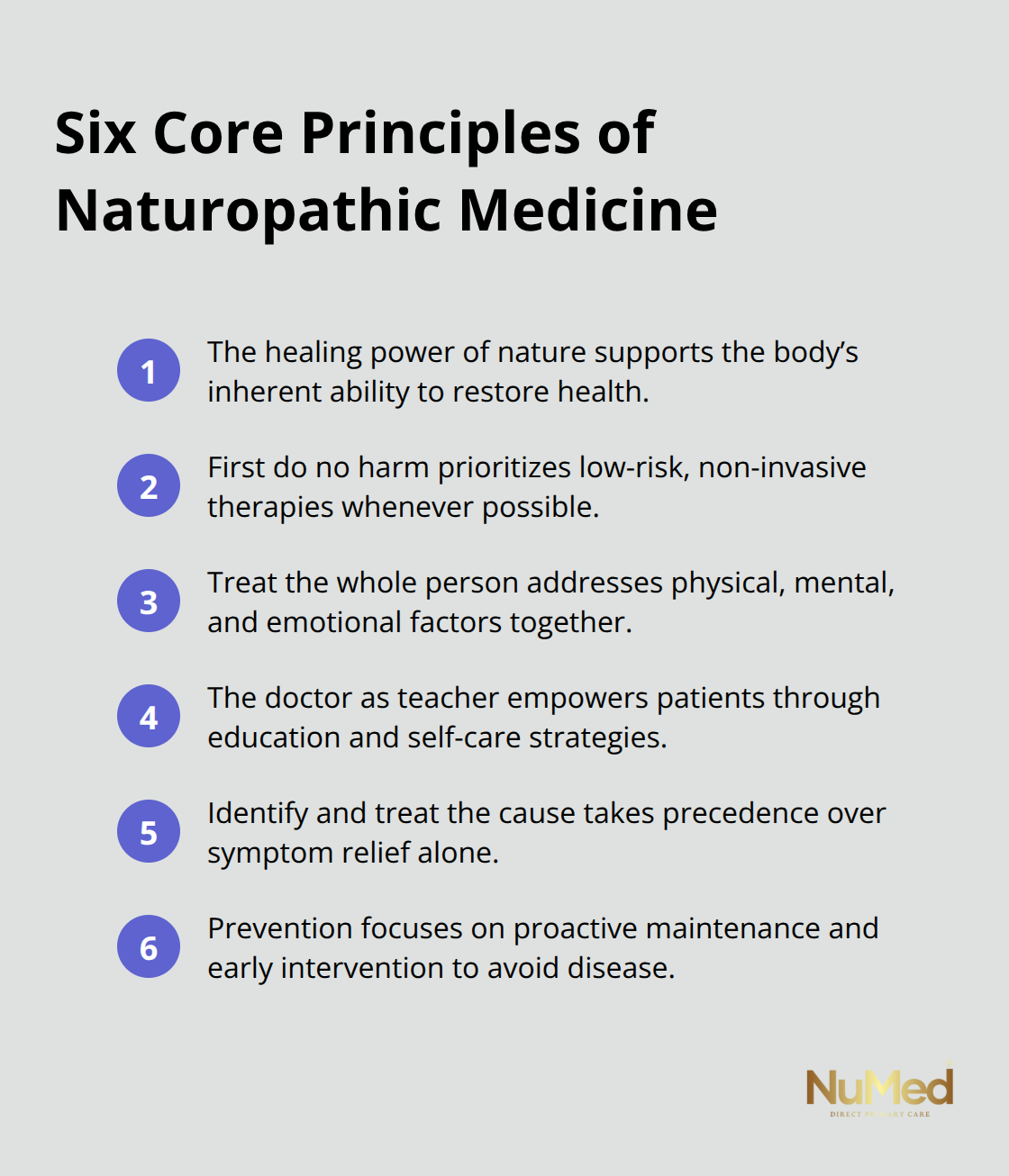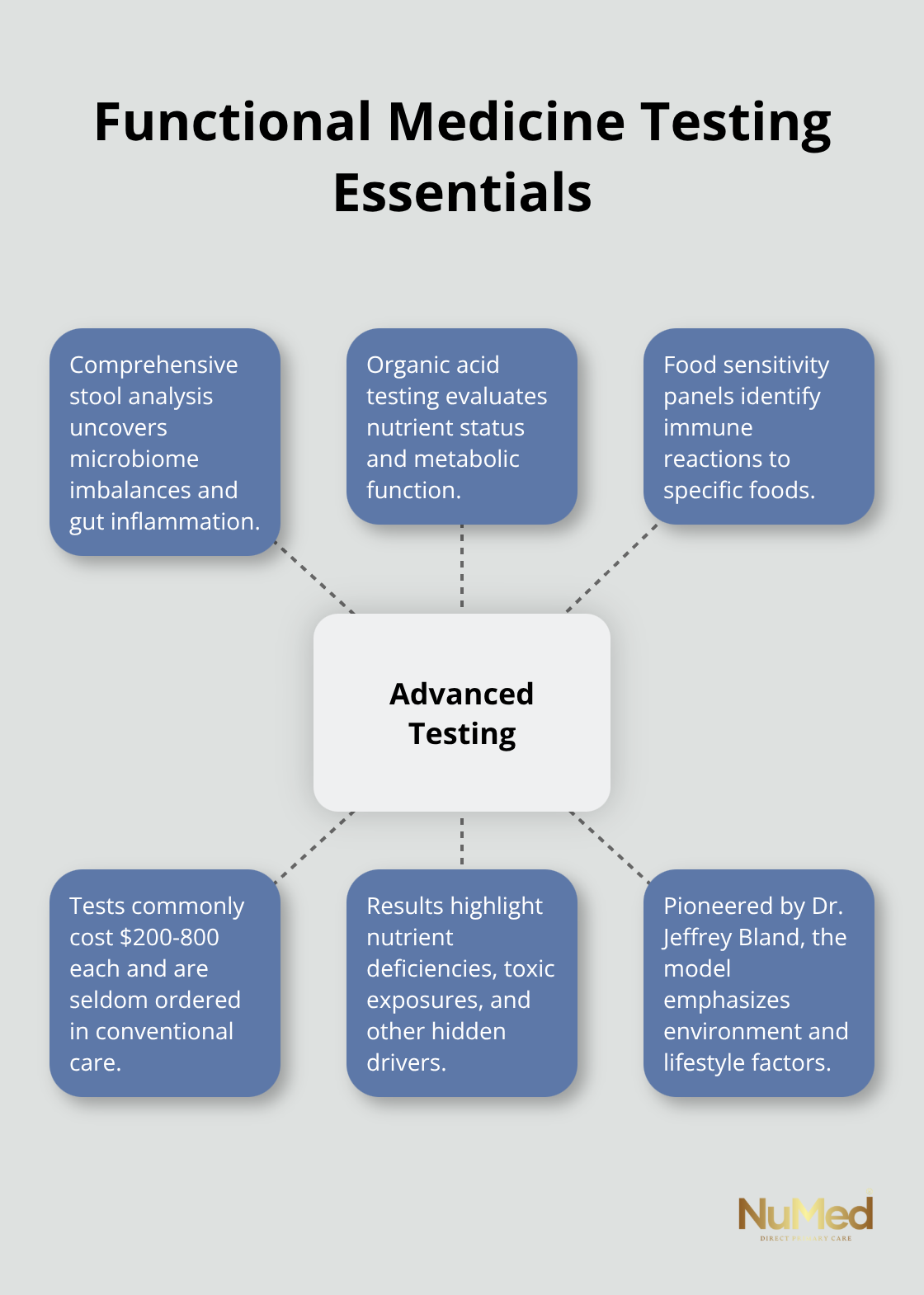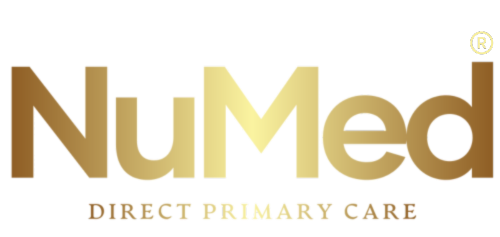Alternative medicine offers two popular paths for patients seeking personalized healthcare approaches. The naturopathic vs functional medicine debate often confuses people looking for natural treatment options.
We at NuMed DPC help patients understand these distinct medical philosophies. Both approaches focus on treating root causes rather than just symptoms, but they differ significantly in their methods and practitioner training.
Understanding Naturopathic Medicine
Naturopathic medicine operates on six foundational principles that shape every treatment decision. The healing power of nature guides practitioners to support the body’s inherent ability to heal itself. First do no harm means choosing therapies with minimal side effects over aggressive interventions. Treating the whole person addresses physical, mental, and emotional aspects simultaneously rather than isolating symptoms.

Six Core Principles Drive Treatment Decisions
The doctor as teacher principle transforms practitioners into health educators who empower patients with knowledge and self-care strategies. Identifying and treating the cause takes precedence over symptom management. Naturopathic doctors spend 45-90 minutes during initial consultations (compared to the 15-minute average in conventional medicine). This extended time allows thorough investigation of lifestyle factors, environmental exposures, and genetic predispositions. Prevention serves as the ultimate cure through proactive health maintenance and early intervention strategies.
Natural Therapies Replace Pharmaceutical Interventions
Clinical nutrition forms the backbone of naturopathic treatment, with practitioners who prescribe specific diets to address conditions like inflammatory bowel disease and autoimmune disorders. Botanical medicine utilizes standardized herbal extracts with measurable active compounds. Homeopathy applies highly diluted substances to stimulate healing responses. Physical therapies include hydrotherapy, massage, and exercise prescriptions tailored to individual conditions. Mind-body techniques such as stress reduction and counseling address emotional components of illness.
Rigorous Training Standards Set Professional Competency
Naturopathic doctors complete four years of graduate-level education at accredited institutions like Bastyr University or National University of Natural Medicine. The curriculum includes 4,100 hours of study that covers basic sciences, clinical diagnosis, and natural therapeutics. Students must pass comprehensive board examinations through the North American Board of Naturopathic Examiners. Currently, 23 states regulate naturopathic doctors (requiring continuing education to maintain credentials). Licensed naturopathic doctors can prescribe medications, order laboratory tests, and perform minor surgical procedures in regulated states.
While naturopathic medicine emphasizes traditional healing wisdom, functional medicine takes a different approach to root-cause analysis through advanced diagnostic testing and systems-based thinking.
Understanding Functional Medicine
Advanced Testing Reveals Hidden Health Patterns
Functional medicine practitioners order comprehensive diagnostic panels that conventional doctors rarely use. The Cleveland Clinic Center for Functional Medicine runs specialized tests including comprehensive stool analysis, organic acid testing, and food sensitivity panels, to identify underlying imbalances. These tests cost between $200-800 each but reveal critical information about nutrient deficiencies, toxic exposures, and metabolic dysfunction that standard blood work misses. Dr. Jeffrey Bland, who founded the Institute for Functional Medicine in 1991, developed this approach after he recognized that chronic diseases stem from identifiable environmental and lifestyle factors rather than genetics alone.

Personalized Treatment Plans Target Multiple Body Systems
Functional medicine doctors create detailed treatment protocols based on test results and patient history. A typical plan addresses gut health through specific probiotics, reduces inflammation with targeted supplements like omega-3 fatty acids, and optimizes detoxification pathways through liver support nutrients. The approach differs from naturopathic medicine because it focuses heavily on biochemical pathways and uses pharmaceutical-grade supplements with precise doses. Practitioners monitor progress through follow-up tests every 3-6 months and adjust protocols based on biomarker improvements. This data-driven methodology appeals to patients who want measurable health outcomes rather than reliance solely on symptom improvement.
Mainstream Medicine Integration Expands Treatment Options
Unlike naturopathic doctors who primarily use natural therapies, functional medicine practitioners combine conventional medications with lifestyle interventions when necessary. The Cleveland Clinic and Mayo Clinic now offer functional medicine services alongside traditional departments, which demonstrates mainstream acceptance of this approach. Functional medicine doctors can prescribe standard medications while they simultaneously address root causes through nutrition and supplementation. This integration allows patients to maintain relationships with specialists while they receive comprehensive care that addresses underlying health imbalances.
Both approaches offer distinct advantages, but they differ significantly in their treatment philosophies, practitioner requirements, and cost structures that patients must consider.
Key Differences Between Naturopathic and Functional Medicine
Naturopathic medicine prioritizes gentle, time-tested therapies that work with your body’s natural mechanisms, while functional medicine emphasizes data-driven protocols that target specific biochemical imbalances. Naturopathic doctors spend 60-90 minutes per visit to build comprehensive health histories and rely primarily on natural substances like herbs, nutrients, and lifestyle modifications. Functional medicine practitioners focus on advanced laboratory tests that cost $1,000-3,000 annually and create precise supplement protocols based on biomarker results rather than traditional methods.
Educational Requirements Shape Practice Quality
Naturopathic doctors complete four years of graduate education at accredited institutions with extensive study in natural therapeutics, clinical diagnosis, and basic sciences. They pass board examinations and maintain licenses through continued education in 23 regulated states. Functional medicine practitioners come from various backgrounds (MDs, DOs, nurse practitioners, and chiropractors) who complete certification programs through the Institute for Functional Medicine. These programs range from weekend workshops to year-long courses but lack standardized requirements or oversight, which creates significant variation in practitioner competency levels.
Insurance Coverage Determines Out-of-Pocket Costs
Most insurance plans exclude naturopathic services, which requires patients to pay $200-400 per visit out-of-pocket plus additional costs for recommended supplements and tests. Functional medicine visits through licensed MDs or DOs typically receive partial insurance coverage for consultation fees, though specialized tests and supplements remain patient responsibilities. The total annual investment for naturopathic care averages $3,000-5,000, while functional medicine costs $4,000-8,000 due to extensive tests.

Treatment Philosophy Affects Patient Experience
Naturopathic doctors emphasize the body’s innate ability to heal and use gentle interventions that minimize side effects. They incorporate traditional wisdom from systems like Ayurveda and Chinese medicine alongside modern research. Functional medicine practitioners focus on biochemical pathways and use pharmaceutical-grade supplements with precise doses to correct specific imbalances. Patients with complex chronic conditions often find functional medicine’s detailed approach worth the higher investment, while those who seek preventive care prefer naturopathic medicine’s gentler methods.
Final Thoughts
Your health goals and personal preferences should guide your naturopathic vs functional medicine choice. Patients with complex chronic conditions often benefit from functional medicine’s detailed tests and biochemical approach, while those who seek preventive care and gentle interventions prefer naturopathic medicine’s traditional methods. Ask potential practitioners about their specific credentials, treatment success rates with conditions similar to yours, and total cost expectations (tests and supplements included).
Consider your budget carefully since both approaches require significant out-of-pocket investment. Functional medicine typically costs $4,000-8,000 annually due to extensive tests, while naturopathic care averages $3,000-5,000 with fewer diagnostic requirements. Request detailed explanations of their diagnostic approach and treatment philosophy to determine alignment with your healthcare values.
We at NuMed DPC offer functional medicine services alongside comprehensive health coaching through our direct primary care model. Our transparent pricing eliminates insurance complications while we provide personalized treatment plans that address root causes of illness. Schedule consultations with practitioners from both fields to experience their approaches firsthand and make an informed decision based on communication style, treatment philosophy, and expected outcomes.
















